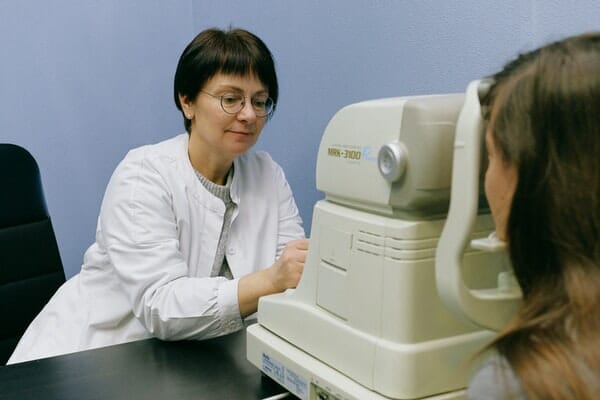Eyelid Drooping: A Common Consequence of Bell's Palsy
Bell's Palsy can cause weakness or paralysis in the muscles that control the eyelid, leading to drooping or sagging of the eyelid on one side of the face. This can make it difficult to keep the eye closed and can result in dry eye syndrome and an increased risk of eye infections. In some cases, the drooping eyelid may also affect the person's appearance, causing cosmetic concerns.
Seeing Double with Bell's Palsy: Understanding its Causes and Treatment
Bell's Palsy can cause double vision because the eyes are no longer working together in harmony. This can be due to a misalignment of the eyes caused by the weakened or paralyzed muscles controlling the eyelid and eye movement. This double vision can be confusing and disruptive to daily activities and can be treated with special glasses, vision therapy, or eye patches.
Is blurry, fuzzy, or double vision impacting your quality of life and vision? Take our online double vision assessment to help identify if you may have an underlying vision problem that is causing diplopia (double vision)
Dealing with Dry Eye: Understanding its Connection to Bell's Palsy
One of the most common symptoms that an optometrist will treat for Bell’s Palsy is dry eye. Bell's Palsy can cause difficulty in closing the eye due to the weakness or paralysis in the eyelid muscles. This can lead to dry eye syndrome, as the eye struggles to produce enough tears to keep the surface moist. Dry eye can be uncomfortable and increase the risk of eye infections, making it important to seek eye treatments. To avoid damage to the eye, it's important to keep the cornea, the clear protective covering of the pupil, moist. Artificial tears in the form of eye drops can be used throughout the day, and a moisturizing eye ointment at night. Although the ointment may cause blurred vision during the day, it will keep the eye moisturized. To protect the eye during the day, moisture chamber goggles can be worn. At night, a patch can be used or taping the eyelids, however please speak with our optometrist before taping as you must make sure to avoid the tape scratching the cornea.
If eye drops and moisture chamber goggles are not effective then scleral lenses are extremely effective. Learn more about scleral lenses for dry eye.










